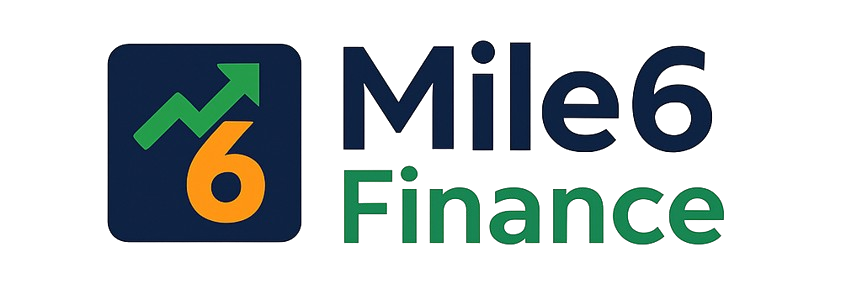Understanding Urgent Loans
Urgent loans are financial products designed to provide immediate financial relief in situations that require quick access to cash, such as medical emergencies, urgent home repairs, or unforeseen expenses. Unlike traditional loans, which may involve lengthy approval processes and substantial documentation, urgent loans are tailored for swift disbursement, making them ideal for individuals who need funds within a short timeframe.
In Nigeria, a significant number of people encounter financial constraints that make urgent loans a necessary solution. With a large portion of the population living paycheck to paycheck, a small amount like ₦10,000 can make a substantial difference in managing day-to-day expenses. This pressing need for financial assistance has driven the demand for urgent loans, offering a crucial financial buffer during challenging times.
The terms and conditions for urgent loans typically vary from traditional loans. Generally, urgent loans come with higher interest rates due to the increased risk for lenders and the fast approval process. However, they often have shorter repayment periods, usually within a few weeks or months, compared to traditional loans, which can extend over several years. Furthermore, the application process for urgent loans is streamlined, with minimal documentation requirements, enabling quicker access to funds.
The primary advantage of urgent loans is the speed of disbursement. Once the application is approved, the funds are generally released within hours or a couple of days at most. This immediate availability is crucial in emergencies, where time is of the essence. Additionally, the minimal documentation required, such as proof of identity and income, simplifies the application process, making it accessible to a broader audience.
Overall, urgent loans are a practical financial tool for individuals facing immediate monetary needs. By providing quick access to funds and requiring minimal paperwork, they offer a valuable lifeline to Nigerians navigating financial stress. However, it is essential to understand the terms and conditions associated with these loans to make informed decisions and ensure they serve the intended purpose effectively.
Urgent 10,000 Loan Apps
Fairmoney Android App —- IOS (iPhone)
Alat
Renmoney
Quickcheck Android App —- IOS (iPhone)
Eligibility and Requirements for Urgent Loans
When seeking an urgent loan of ₦10,000 in Nigeria, understanding the eligibility criteria and requirements is crucial. Lenders typically set specific guidelines to ensure that applicants can repay their loans promptly and reliably, safeguarding their interests and minimizing risk.
Firstly, age is a primary requirement; most lenders require applicants to be between 21 and 60 years old. This age range encompasses individuals who are more likely to have a stable income and demonstrates financial responsibility. Another critical factor is employment status. Applicants must be employed full-time, part-time, or as self-employed individuals with steady income sources. This ensures that the borrower has the financial means to repay the loan within the stipulated period.
Proof of income is another vital requirement. Lenders usually demand recent pay slips, bank statements, or tax returns as evidence of the applicant’s earning capability. Having an official identification document, such as a National ID card, driver’s license, or international passport, is also necessary to verify the borrower’s identity. Additional documentation might include utility bills to confirm the applicant’s residence.
A good credit score significantly improves an applicant’s chances of securing an urgent loan 10000. This is because a good credit score reflects a history of prompt repayments, making the applicant a lower risk to the lender. However, first-time borrowers need not be discouraged if they lack a credit history. Some lenders are willing to extend loans to individuals with no credit history, provided they meet other criteria convincingly.
Lenders may also consider additional factors such as the applicant’s debt-to-income ratio, the nature of employment, and any existing financial obligations to assess overall financial health. Common pitfalls applicants should avoid include providing inaccurate information, failing to submit required documentation, and applying for multiple loans simultaneously, which could signify financial distress to lenders.
Understanding these eligibility criteria and requirements will enhance your chances of securing a ₦10,000 loan swiftly and with minimal complications.
Steps to Apply for an Urgent Loan
Securing an urgent loan of ₦10,000 in Nigeria involves a series of methodical steps, aimed at ensuring you choose the right lender and fulfil all necessary requirements. To start with, selecting a reputable lender is crucial. You can opt for well-known financial institutions, microfinance banks, or reputable online platforms that specialize in providing urgent loans.
Once you have a list of potential lenders, the next step is to thoroughly research their terms and conditions. Pay special attention to interest rates, repayment schedules, and any additional fees. This will help you understand the full cost of the loan and avoid any hidden charges.
The application process can be conducted through various platforms, each offering its set of conveniences. Many lenders provide online applications, which can be completed on their websites. Alternatively, several financial institutions offer mobile apps that streamline the application process. For those who prefer a more traditional approach, physical visits to the lender’s office are also an option.
Documentation is a critical aspect of the loan application. Typically, you will need to provide a valid government-issued ID, proof of income, a recent utility bill, and your bank statement. Make sure all documents are up-to-date and correctly filled out to prevent delays in the application process. Double-check the information on the application form for accuracy before submission.
Lastly, understanding the loan terms is vital. Ensure you thoroughly read the loan agreement, paying close attention to the repayment schedule, interest rates, and any penalties for late payments. Double-checking all provided information and understanding the loan terms will contribute to a smooth application process, making it easier to secure an urgent loan of ₦10,000.
Managing and Repaying Your Urgent Loan
Once you have secured an urgent loan of ₦10,000, managing and repaying it efficiently is paramount to avoid any negative financial repercussions. The first step is to create a comprehensive budget that prioritizes urgent needs while accounting for loan repayment. Begin by listing your essential expenses and segregate them from non-essential ones. Allocate your loan strategically to address these essential items while ensuring you reserve adequate funds for monthly repayments.
Timely repayment of the urgent loan is crucial to maintain a good credit score. Late payments or defaults can severely impact your credit rating, making it difficult to access credit in the future. Borrowers should continuously monitor their repayment schedule and ensure that payments are made before due dates. Employ reminders or automated payment options offered by lenders to mitigate the risk of missing a payment.
In situations where it’s challenging to repay the loan on time, exploring alternative income streams can be beneficial. Consider part-time work, freelance opportunities, or selling unnecessary items to generate extra income. Additionally, scrutinizing your budget for potential cost-saving measures can free up resources for repayment. Minor lifestyle adjustments, such as reducing discretionary spending on entertainment or dining out, can contribute significantly to meeting repayment schedules.
Early repayment of an urgent loan comes with several benefits, including reduced interest costs and improved creditworthiness. If possible, pay off the loan ahead of schedule to save on interest and boost your financial profile. However, verify if the lender imposes any prepayment penalties, as some financial institutions may charge a fee for early loan closure.
For borrowers facing prolonged financial difficulties, refinancing options might be worth exploring. Some lenders offer the possibility to restructure the loan terms, possibly extending the repayment period to lower monthly payments. While this may result in paying more interest over time, it can provide immediate relief and ensure that the loan remains manageable.










